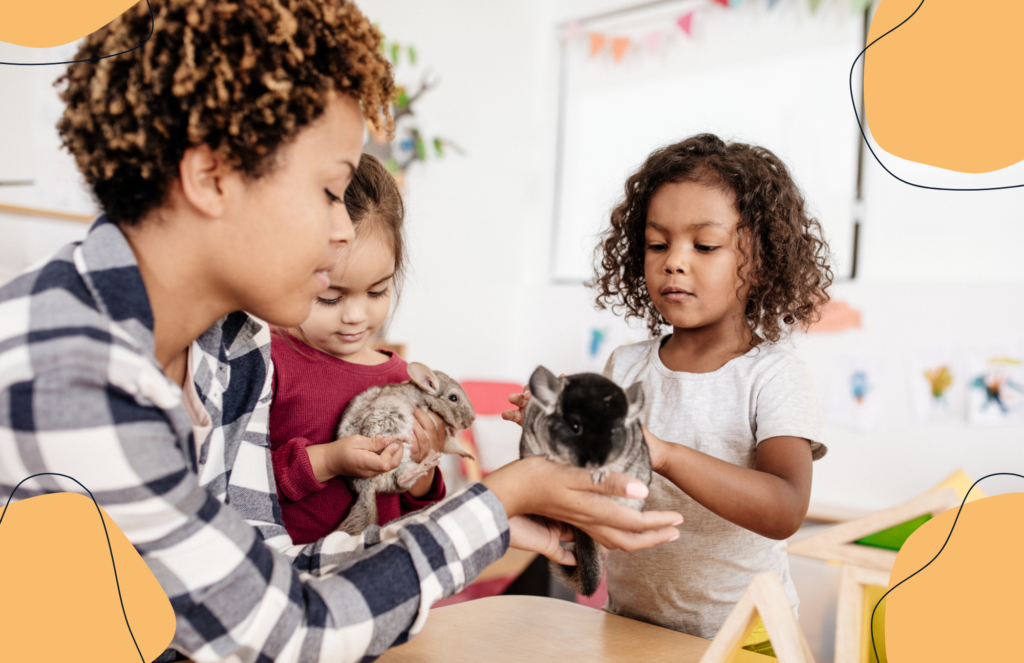Your cart is currently empty!

CDA Resources

Understanding the Unique Needs of Twins in Early Childhood Development provides long-term benefits to the overall health and mental well-being of twins.
Some twins thrive when they have their counterparts by their side, as they support and uplift each other rather than hold one another back. It can feel like having a cheerleader during challenging moments—be it the first day of school, a big science test, or navigating social dynamics. This support is especially beneficial for twins younger than five or entering kindergarten, a significant and sometimes intimidating transition. Depending on their personalities and relationships, being in the same classroom might stimulate healthy competition that encourages them to excel academically. Additionally, some experts suggest that separating twins can be more detrimental than beneficial. Psychologist Mary Lamia, PhD, argues in her article, ” that the strong bond twins share in her article, Twins: In Defense of Togetherness, means that dividing them can shift their focus to separation rather than their learning. Moreover, the more confident twin could experience anxiety without their sibling present, and both twins may feel unsettled not knowing how the other is faring. Thus, what could be intended as a means to promote individuality can inadvertently lead to fear and distress.
As a twin myself, I understand the unique “twin bond,” theory. However, it doesn’t necessarily mean we have the same interests or desires. Much like any other siblings, twins can exhibit both similarities and differences. They might enjoy the same activities or pursue entirely different passions, hobbies, and skills; they may prefer spending every moment together or desire some space apart; their personalities might align closely, or they could be total opposites. Regardless of these similarities or differences, twins are distinct individuals deserving of recognition as such. To make the decision about whether to place them in separate classes at school is particularly complex and often stressful for parents of twins. From my experience as a classroom observer and twin myself, I believe placing them in the same class is important to their social and emotional development in early childhood should one twin or both have a hard time coping when separated. However, it’s important to note, to have a trial run for a day or a week to see how well they both adjust. If one or both aren’t coping without the other, it is recommended they stay together and build relationships with other peers within the classroom space in early childhood ages 2 to 5 years of age. As they enter into elementary school, caregivers should have a better sense of each twins needs by looking at the emotional needs of both twins. In my case, I was not able to function emotionally without my twin being present. Separating us in kindergarten without experience in preschool would have set me back emotionally. However, as twins age, it is always good to look at their independence and needs and make adjustments when necessary. The right choice will vary for each family.
Twins share a unique bond that can be both a source of joy and complexity, and understanding their specific needs is crucial for their healthy development. Whether they are identical or fraternal, twins often navigate a world that constantly compares them to one another, which can impact their self-esteem, individuality, and relationship dynamics. Here’s a closer look at the unique needs of twins and how caregivers can foster their growth.
1. Recognize Individuality:
One of the fundamental aspects of supporting twins is recognizing their individuality. Each twin possesses unique personality traits, preferences, and talents. Parents and caregivers should encourage them to explore their interests separately, even if it means letting go of the idea that they need to do everything together. This approach not only nurtures their sense of self but also helps them develop their identities outside of their twinship.
2. Avoid Comparison:
Comparisons can be detrimental to a twin’s self-concept. Phrases like “Why can’t you be more like your sibling?” can create feelings of inadequacy and resentment. Instead, celebrate their individual accomplishments and milestones. Employ positive reinforcement by recognizing their unique strengths, cultivating an environment where both twins feel valued for who they are.
3. Encourage Independent Relationships:
While the bond between twins can be incredibly strong, it is essential to encourage them to build relationships outside of their twinship. This can be facilitated by engaging them in extracurricular activities or playdates with peers. By fostering independent friendships, twins learn to navigate social dynamics and develop skills that ensure they are not solely reliant on one another for emotional support.
4. Promote Healthy Conflict Resolution:
Disagreements are natural in any relationship, but twins may face additional challenges since they often share the same space and social circles. Teaching them conflict resolution skills can empower them to work through their differences constructively. Encourage open communication, empathy, and compromise, which can strengthen their relationship and prepare them for future interactions with others.
5. Tailor Learning Experiences:
Twins may have varying learning styles and academic strengths. It’s essential to tailor educational experiences to meet their individual needs, whether that means advocating for differentiated instruction at school or providing extracurricular learning opportunities that tap into their distinct talents. This individualized approach helps both twins thrive academically and fosters a love for learning.
6. Include Them in Decision-Making:
Involving twins in family decisions, such as planning activities or setting family rules, can foster a sense of autonomy and responsibility. Each twin’s voice should be heard and valued, reinforcing that their opinions matter as individuals. This practice encourages critical thinking and decision-making skills, integral for their personal development.
7. Celebrate Their Bond:
While emphasizing individuality is vital, it’s equally important to celebrate the unique bond that twins share. Create special traditions and practices that honor their twin connection, fostering a sense of belonging and mutual support. Acknowledge their shared experiences while encouraging them to chart their own paths.
In Conclusion:
Supporting the needs and growth of twins requires a thoughtful approach that balances their shared bond and individual identities. By recognizing their uniqueness, avoiding comparisons, and fostering independent relationships, caregivers can help twins develop into confident, well-rounded individuals. Let’s celebrate the joys of twinship while ensuring that each twin feels valued for who they are—encouraging both connection and individuality, which is essential for their holistic development.
For those interested in learning more about twins and want to receive a certificate of completion, enroll in our free online training on “Understanding the Unique Needs of Twins in Early Childhood”
